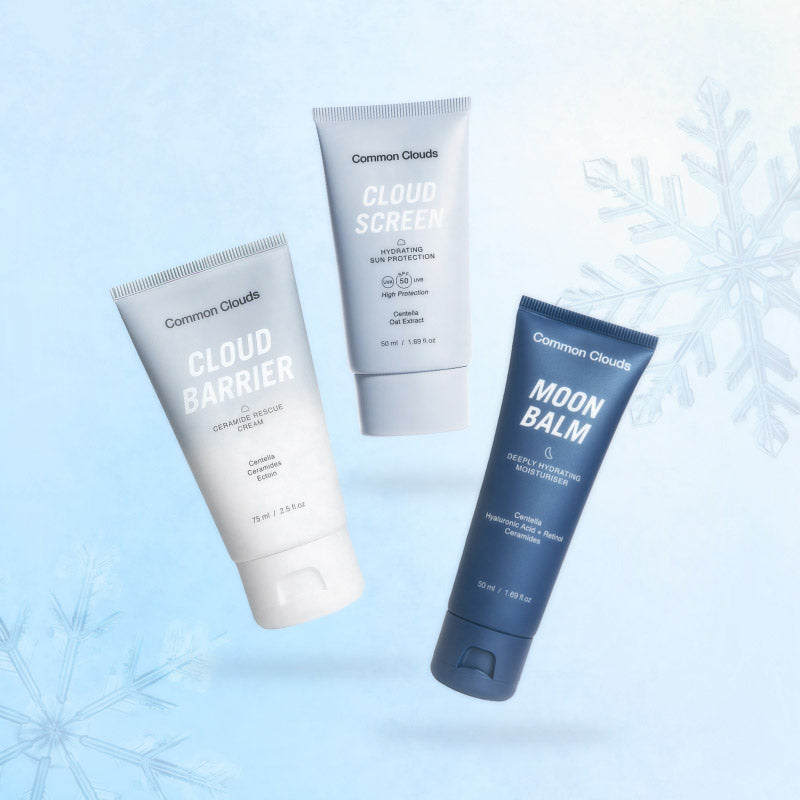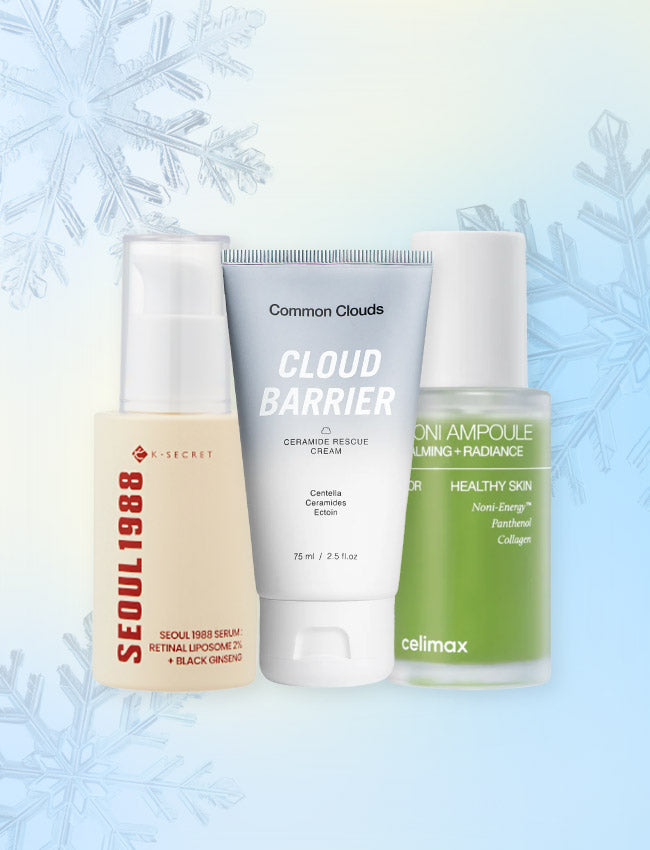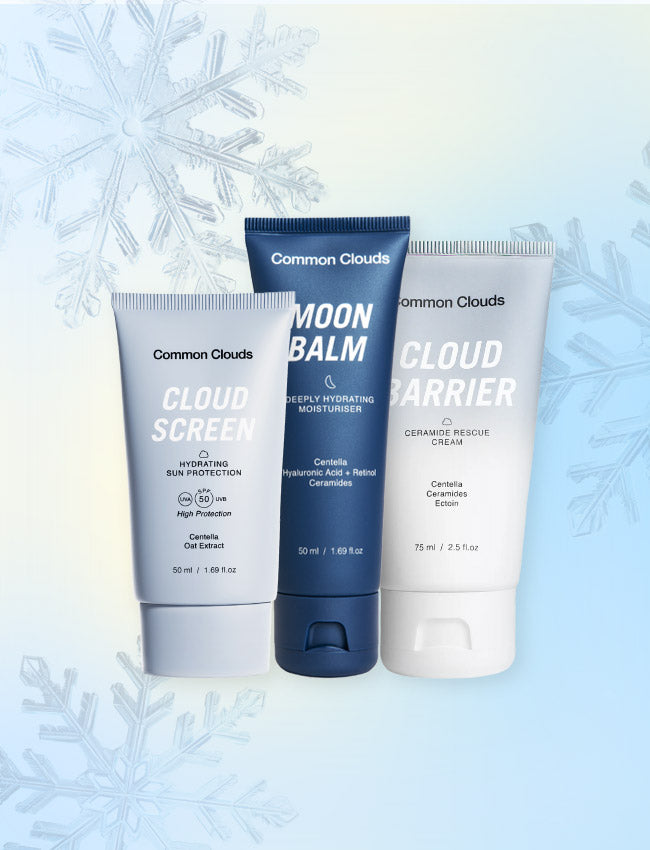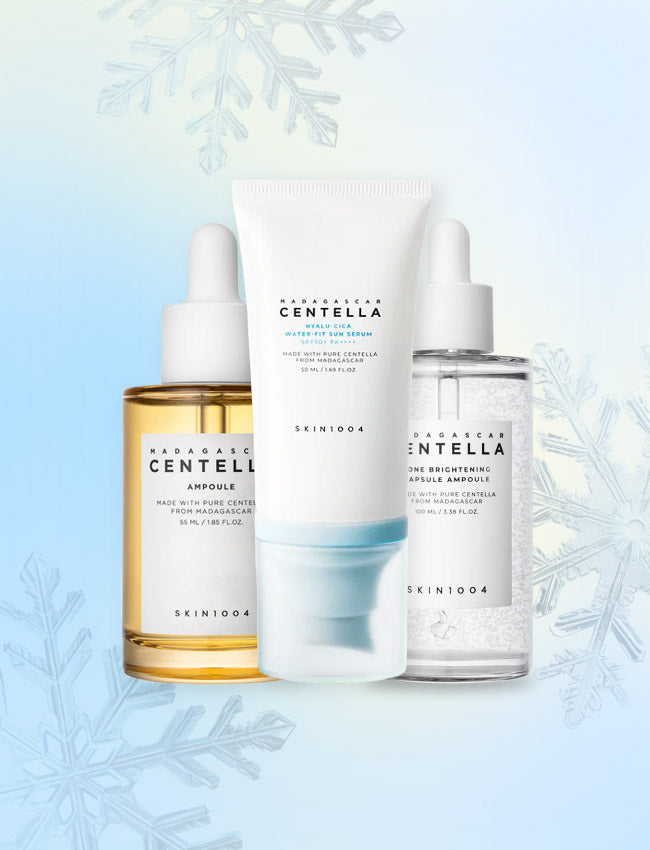Retinal Overview
- Production: Retinal is obtained by the oxidation of Retinol (Vitamin A).
- Effect on the skin: It improves skin texture, reduces wrinkles, and promotes cell renewal.
- Ideal for: Particularly beneficial for people with aging skin, fine lines, and wrinkles, but also for acne-prone skin.
- Interesting fact: Retinal is a direct precursor molecule of Retinoic acid, meaning it requires only one conversion step to become active, making it faster and more effective than Retinol.
The Effects of Retinal
- Cell proliferation and skin renewal: Retinaldehyde promotes the proliferation of keratinocytes, the main cells of the epidermis. This leads to a thickening of the top skin layer, making the skin more resilient and smoother. Studies have shown that the number of Ki67-positive cells, a marker for cell proliferation, is significantly increased after the application of Retinaldehyde. This indicates accelerated skin renewal and regeneration.
- Collagen production and skin tightening: A key advantage of the active ingredient is its ability to stimulate collagen production in the dermis. Collagen is an essential structural protein that gives the skin strength and elasticity. By increasing collagen production, Retinal helps to reduce fine lines and wrinkles and improve overall skin texture. Increased collagen synthesis leads to firmer and tighter skin, which is particularly beneficial in the treatment of aging skin.
- Moisture and skin barrier: Retinal also has positive effects on skin hydration. It helps to reduce the transepidermal water loss rate (TEWL), keeping the skin better hydrated. Well-hydrated skin not only looks healthier but is also more resilient to external influences. It also supports the strengthening of the skin barrier, which is essential for protecting the skin from harmful environmental factors and moisture loss.
- Reduction of pigmentation and even skin tone: Retinal also affects skin pigmentation. It helps to reduce pigmentation spots and hyperpigmentation by regulating melanin production. This contributes to a more even skin tone and reduces the appearance of dark spots and discoloration. This effect is particularly useful for people suffering from sun-induced skin aging or post-inflammatory hyperpigmentation.
- Anti-aging effects and wrinkle reduction: The anti-aging effects of Retinal are well documented. In addition to promoting collagen production and improving skin texture, it also helps to inhibit the activity of matrix metalloproteinases (MMPs) involved in collagen degradation. This slows down collagen breakdown, helping the skin to maintain its firmness and elasticity for longer. Clinical studies have shown that Retinal reduces the depth and number of wrinkles, making the skin appear smoother and more youthful.
Proper Application
- Application frequency: Retinal should be applied 2-3 times a week initially to allow the skin to get used to the active ingredient. If well tolerated, the frequency can be increased to daily use.
- Concentration: A concentration of 0.05% to 0.1% Retinal has been found to be effective and well tolerated.
- Combinations: Retinal can be well combined with moisturizing ingredients such as hyaluronic acid. It can also be used alongside other anti-aging ingredients such as peptides and niacinamide but should not be used simultaneously with exfoliating acids like AHA and BHA to avoid skin irritation.
Retinal vs. Retinol: What is the Difference?
Retinal and Retinol are both derivatives of Vitamin A, but there are significant differences in their efficacy and tolerability. Retinol needs to be converted to Retinoic acid in two steps in the skin, whereas Retinal requires only one step to become active. This direct conversion makes Retinal more potent and effective in improving skin texture and reducing wrinkles.
Studies have shown that Retinal offers similar anti-aging benefits to Retinoic acid but with significantly better tolerability. This means less skin irritation and better adaptability for different skin types, especially for sensitive skin that may react negatively to stronger retinoids.
Conclusion: The Gamechanger in Skincare
Retinal is a remarkable active ingredient in skincare that offers effective anti-aging benefits while being well tolerated. Its quick conversion to Retinoic acid and its positive effects on skin texture and moisture make Retinal an excellent choice for anyone looking to optimize their skincare routine.
Sources
- Mukherjee S, Date A, Patravale V, Korting HC, Roeder A, Weindl G. Retinoids in the treatment of skin aging: an overview of clinical efficacy and safety. Clin Interv Aging. 2006;1(4):327-48. doi: 10.2147/ciia.2006.1.4.327. PMID: 18046911; PMCID: PMC2699641.
- Zasada M, Budzisz E. Retinoids: active molecules influencing skin structure formation in cosmetic and dermatological treatments. Postepy Dermatol Alergol. 2019 Aug;36(4):392-397. doi: 10.5114/ada.2019.87443. Epub 2019 Aug 30. PMID: 31616211; PMCID: PMC6791161.
- Saurat JH, Didierjean L, Masgrau E, Piletta PA, Jaconi S, Chatellard-Gruaz D, Gumowski D, Masouyé I, Salomon D, Siegenthaler G. Topical retinaldehyde on human skin: biologic effects and tolerance. J Invest Dermatol. 1994 Dec;103(6):770-4. doi: 10.1111/1523-1747.ep12412861. PMID: 7798613.
- Kwon HS, Lee JH, Kim GM, Bae JM. Efficacy and safety of retinaldehyde 0.1% and 0.05% creams used to treat photoaged skin: A randomized double-blind controlled trial. J Cosmet Dermatol. 2018 Jun;17(3):471-476. doi: 10.1111/jocd.12551. Epub 2018 Apr 16. PMID: 29663701.
- Kaya A, Saurat JH, Kaya G. Senotherapeutic Effect of Retinaldehyde and Hyaluronate Fragments in Dermatoporosis. Dermatopathology (Basel). 2023 Jun 2;10(2):168-172. doi: 10.3390/dermatopathology10020024. PMID: 37366799; PMCID: PMC10297671.
- Spierings NMK. Evidence for the Efficacy of Over-the-counter Vitamin A Cosmetic Products in the Improvement of Facial Skin Aging: A Systematic Review. J Clin Aesthet Dermatol. 2021 Sep;14(9):33-40. PMID: 34980969; PMCID: PMC8675340.
- Kim J, Kim J, Lee YI, Suk J, Lee D, Lee JH. A pilot study evaluating the efficacy and safety of retinaldehyde-loaded niosomes against mild-to-moderate acne. J Cosmet Dermatol. 2021 Nov;20(11):3586-3592. doi: 10.1111/jocd.14478. Epub 2021 Sep 29. PMID: 34587353.










